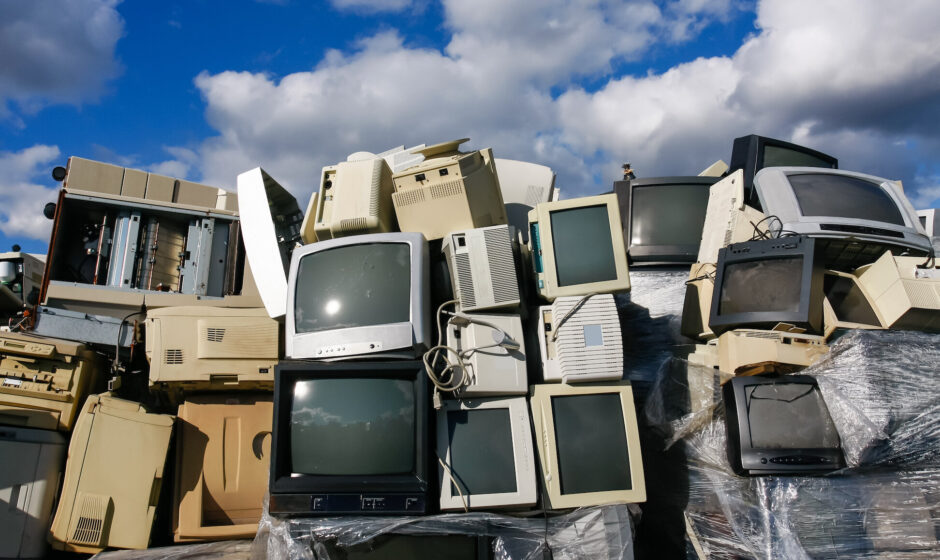Introduction
In a world driven by technology, the challenge of managing electronic waste responsibly has never been more pressing. E-waste, particularly mercury-containing devices, poses a significant threat to our environment and health. This guide will walk you through the essentials of mercury device recycling, offering insights into its importance, practical steps for recycling, and sustainable alternatives. Whether you’re an eco-conscious consumer, a technology enthusiast, or part of a corporate sustainability team, this comprehensive guide is tailored to help you make informed and responsible choices regarding e-waste.
Understanding Mercury Devices
Mercury is a toxic element found in various electronic devices, such as fluorescent lamps, thermometers, and some batteries. These devices play crucial roles in our daily lives but have a darker side due to their environmental impact when not disposed of properly. Mercury can leach into soil and water systems, causing long-term harm to ecosystems and posing serious health risks to humans and wildlife. Understanding the components of these devices is the first step towards managing their disposal responsibly. Knowledge empowers us to make better decisions, ensuring that we minimize their detrimental effects on our planet.
The Need for Proper Recycling
Recycling mercury-containing devices is essential for several compelling reasons. First and foremost, recycling helps prevent the release of mercury into the environment. When these devices end up in landfills, the mercury can escape, leading to severe contamination issues. Additionally, recycling conserves valuable materials, reducing the need for new resource extraction and lessening the overall environmental footprint. Lastly, proper recycling supports a circular economy, where materials are reused and repurposed, promoting sustainability and innovation within industry sectors.
Mercury Device Recycling Services
Recycling mercury devices involves a series of steps to ensure safe handling and disposal. Identification is the first step—recognizing which devices in your home or workplace contain mercury is crucial. Once identified, preparation involves carefully packing the devices to prevent breakage during transport. Many specialized recycling services offer collection programs, making it easy for individuals and companies to dispose of these devices responsibly. These services are equipped to handle the toxic components safely, ensuring that mercury is not released into the environment during the recycling process.
Sustainable Technologies and Alternatives
In the quest for sustainability, it’s important to consider alternatives to mercury-containing devices. Fortunately, advancements in technology have led to the development of eco-friendly options. For instance, LED bulbs present a mercury-free alternative to fluorescent lamps, offering equal or superior lighting performance. Similarly, digital thermometers eliminate the need for mercury, providing accurate readings without environmental risks. By opting for these alternatives, consumers can reduce their environmental impact while still enjoying the benefits of modern technology.
Impact on the Environment and Community
The positive effects of proper recycling practices extend beyond environmental benefits; they impact our communities as well. By preventing mercury pollution, recycling protects public health, reducing the risk of exposure to toxic substances. This is especially important in vulnerable communities that might be more affected by environmental hazards. Additionally, recycling initiatives can create jobs and stimulate local economies, contributing to a healthier and more sustainable society. Ultimately, responsible recycling practices foster a sense of community stewardship, encouraging collective efforts toward a cleaner and safer world.
Corporate Sustainability and Best Practices
For businesses, incorporating mercury device recycling into their sustainability strategies is not just an ethical choice—it’s a smart business move. By adopting best practices, companies can enhance their brand reputation, attract environmentally conscious consumers, and even save costs in the long run through efficient resource management. Establishing clear recycling protocols, educating employees, and partnering with certified recycling services are effective ways to integrate sustainability into corporate culture. Companies that lead in sustainability set themselves apart in a competitive market and pave the way for a greener future.
Conclusion
Responsible management of mercury-containing devices is crucial for safeguarding our environment and health. Throughout this guide, we’ve explored the importance of identifying and recycling such devices, highlighted sustainable alternatives, and discussed the broader impacts on communities and businesses. By taking action, whether as an individual or an organization, you contribute to a sustainable future. Let’s commit to responsible recycling practices, reduce our reliance on harmful materials, and drive the change needed for a healthier planet.
Additional Resources and References
For those interested in further exploring mercury device recycling, numerous resources are available. Organizations like the Environmental Protection Agency (EPA) offer detailed guides and lists of certified recycling centers. Additionally, platforms like Earth911 provide tools to locate nearby recycling facilities. For businesses, the Global Reporting Initiative (GRI) offers frameworks for sustainability reporting, helping companies track and communicate their environmental efforts effectively. Engaging with these resources not only deepens your understanding but also empowers you to make informed decisions for a sustainable future.




